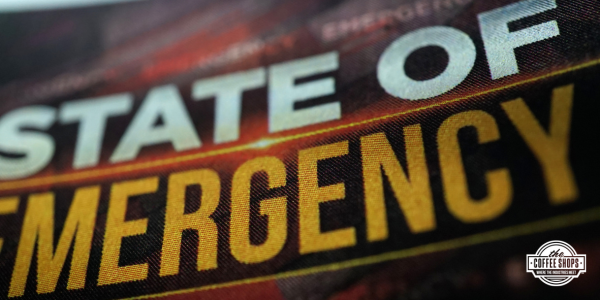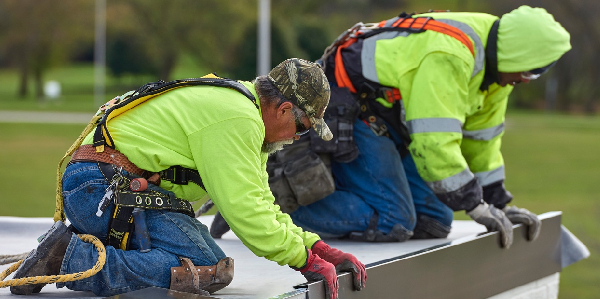UP TO THE MINUTE
Florida under state of emergency with Hurricane Milton

By Trent Cotney, Adams and Reese.
With many towns and neighborhoods still recovering from Hurricane Helene, Floridians now find themselves facing the aftermath of Hurricane Milton.
On Monday, October 7, Governor DeSantis issued an updated state of emergency, expanding the list of affected counties from 35 to 54.
What a state of emergency means
When a state of emergency is declared, state and local governments have more leeway in coordinating efforts among relief agencies, reallocating resources and relaxing certain restrictions so they can quickly manage the ongoing threat.
Such a declaration triggers the following actions:
- Authorizing control for distributing and using equipment, supplies, materials and facilities required for emergencies.
- Activating the emergency mitigation, response and recovery elements of state and local emergency management plans
- Granting authority for health care workers from other states to provide assistance in the state impacted by the emergency.
- Initiating a formal request, in some cases, for the U.S. president to mobilize the military
New state of emergency language in roofing contracts
You may recall that in May of this year, Governor DeSantis signed into law HB 939, which went into effect on July 1. This bill addresses various consumer protection concerns, including contracts between residential property owners and roofing contractors during a declared state of emergency.
Roofers who enter agreements with homeowners to repair or replace their roofs are reminded that homeowners now have new protections if those agreements were made based on events declared by the governor to be a state of emergency. Under such conditions, a homeowner is allowed 10 days to cancel such a contract after signing it or up to the official start date — whichever date comes first — without obligation or penalty.
The definition of start date consists of a variety of things. Mike Silvers, technical director for FRSA, in a recent article published in FRSA’s magazine stated that there are certain occurrences that would eliminate the ability to cancel under this statutory requirement:
- “The installation of materials that will be included in the final work on the roof commences. For instance, a portion of a damaged roof covering is removed and proper underlayment is installed until the roof replacement can be completed or that replacement has begun.
- A temporary repair to the roof covering or roof has been made in compliance with the Florida Building Code. This will allow a contractor to get his customer dried in (not tarped) while they wait for a permanent repair or replacement.
- A final permit has been issued. The inclusion of the words “final permit” could be misleading. Typically, there is only one permit that is issued, not a final permit as referred to in the language. There is a final inspection, which isn’t what is referred to here. This provision should eliminate the contract being cancelled after permitting.
These provisions do not recognize loading of materials or tarping as a start date that would eliminate the possibility of cancellation. As stated earlier, these methods have been used by some unscrupulous contractors and legislators felt that these issues needed to be addressed.”1
In addition, roofing contractors who execute contracts during a declared state of emergency are mandated to include the following language. It must appear in bold type, in at least 18-point font:
You, the residential property owner, may cancel this contract without penalty or obligation within 10 days after the execution of the contract or by the official start date, whichever comes first, because this contract was entered into during a declaration of a state of emergency by the Governor. The official start date is the date on which work that includes the installation of materials that will be included in the final work on the roof commences, a final permit has been issued or a temporary repair to the roof covering or roof system has been made in compliance with the Florida Building Code.
Roofing contractors are required to include this stipulation in the contract or as an attachment. It must be placed in the contract immediately before the space intended for the homeowner’s signature or on a separate attachment immediately above the customer’s signature.
In the event that the homeowner wishes to cancel, notice must be sent to the address listed in the contract via certified mail — with a return receipt requested — or by another method that provides proof of delivery.
During this stressful time, this legislation makes it more cumbersome for roofers to ensure their customers will honor their contracts. Roofers will likely feel pressured to appease their customers and start work as quickly as they can. Allowing homeowners the option to cancel their contracts can create some uncertainty with regard to scheduling and purchasing of materials.
Final advice
The coming days will be challenging for Florida. Hurricane Milton was one of the strongest storms on record and river flooding continues to occur days after the hurricane made landfall. If you enter contractual agreements with your customers during this state of emergency, do so with caution and be sure to include the contract provision listed above.
Trent Cotney is a partner and Construction Practice Group Leader at the law firm of Adams and Reese LLP and NRCA and FRSA General Counsel. You can reach him at 866.303.5868 or trent.cotney@arlaw.com.
Learn more about Adams & Reese LLP in their Coffee Shop Directory or visit www.adamsandreese.com.
The information contained in this article is for general educational information only. This information does not constitute legal advice, is not intended to constitute legal advice, nor should it be relied upon as legal advice for your specific factual pattern or situation.


















Comments
Leave a Reply
Have an account? Login to leave a comment!
Sign In